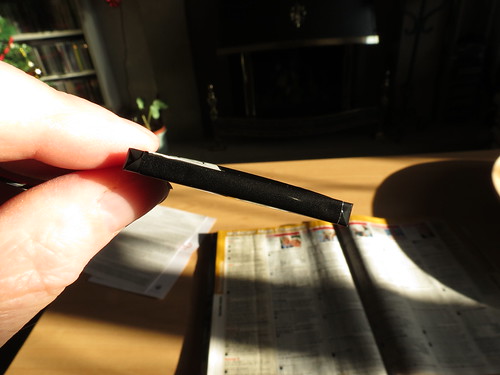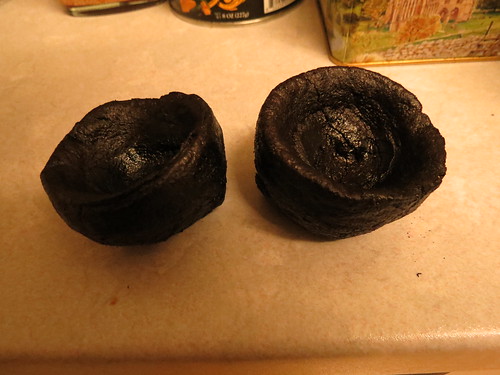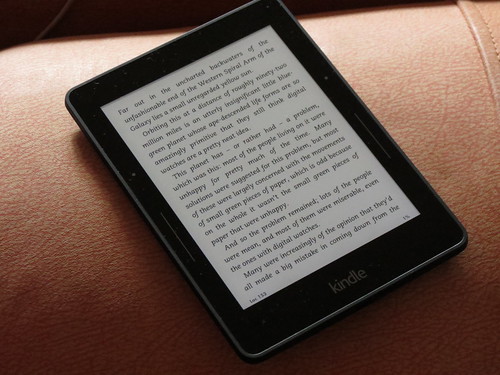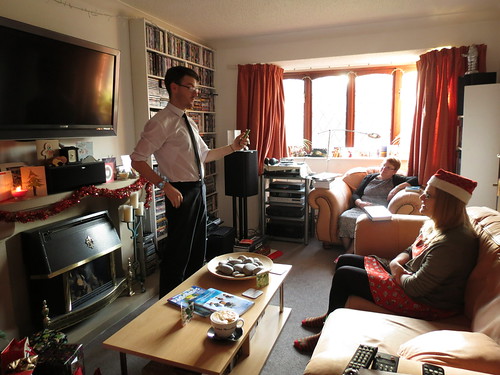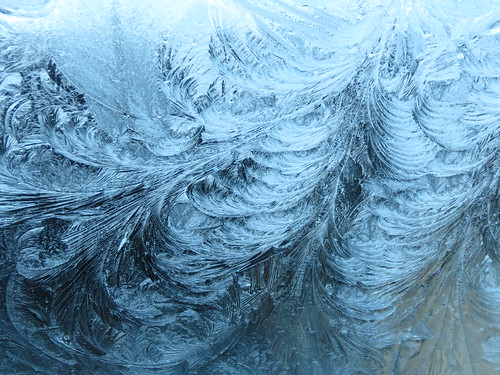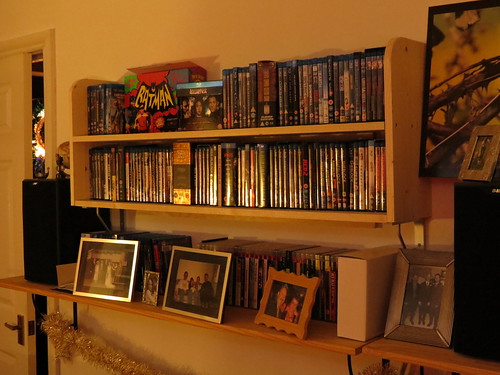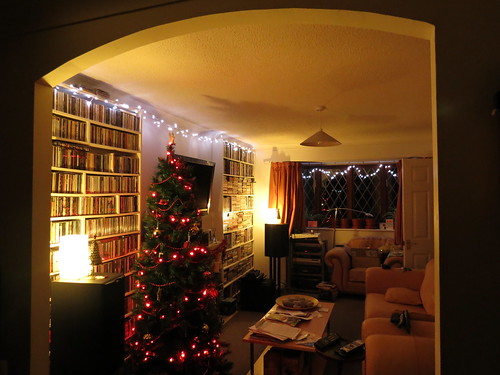It's New Year's Eve so I'm updating the blog for the last time this year. I don't often do reviews of the year - in fact I've done so exactly once, in 2011 - and I don't propose doing so again any time soon. Looking at past blog entries for the end of December it's more often the case that I bid a year good riddance, as I did in 2010. This year definitely feels like that is what is required, so it's time to move on and look forwards to the future.
WHAT ABOUT THE FUTURE?
2015 is going to be interesting in many ways, not least as the Dawn spacecraft has already begun its final approach to the dwarf planet Ceres, which it should begin orbiting in March, and New Horizons is rapidly closing in on Pluto for a fly-by on July 14th.
The Large Hadron Collider will be restarting in 2015 at the higher energy of 6.5 TeV per beam, twice as much as was used in its initial run. The first collisions are expected to take place in May.
I'm sure the Internet will get more and more wound up as we approach 4:29 p.m. on Wednesday, Oct. 21, 2015, as we will then all be living in the future. Why? Because that's the specific time and date to which Marty McFly travels in Back to the Future Part II and, hoaxes aside, I'm quite sure you and I will not be allowed to forget the fact. It's worth pointing out that you don't even have to wait for 2015 to go for a ride in a flying car or play with a hoverboard.
Yesterday, the folks at Bandcamp announced that their users will not need to register for VAT, submit quarterly reports and so on as part of the EU's #VATMESS system that comes into place tomorrow. "We will take care of all that for you," they say - which is very welcome news. I feel very sorry for them, to be honest, because they had been placed in a very uncomfortable position and the alternative to assuming responsibility for tax collection would be to see most, if not all of their users based in the EU disappear completely.
But the news means that I'm going to leave my Bandcamp page as it is. In fact, I may well be adding stuff to it in the next couple of months. Stay tuned!
No, silly, not me - the old battery for my PS3 controller. Look:
Over the last six months all the controllers for the Playstation have lost the ability to retain a charge. It's not that surprising, as they're still on the original batteries from when I bought the thing back in May 2008 and I've played an awful lot of video games since then. I was quite taken aback to see the case bulging like that, though. It means I've overcharged the battery at some point, and that's something I thought that I'd been careful to avoid. Still, the battery is nowhere near as bad as some of the examples I've seen.
Despite being slightly bigger, the new battery has a slightly smaller capacity than the old one: 570 mAh compared to 610 mAh, but at £7 it worked out a lot cheaper than buying a new controller. I might fire up the system and play something this afternoon - it's been a while!
OOPS
When I put the oven on last night to cook supper, I realised I could smell something odd. I'd noticed it the day before, too, but only subliminally. I followed my nose into the kitchen, where I realised the small was something burning. I opened the oven and, right at the back, discovered these Yorkshire puddings.
They must have slid off the baking tray on Thursday afternoon when we cooked Christmas dinner and they've been in the oven ever since, getting progressively more carbonized with each round of cooking that took place. As there's not much to them they didn't generate enough smoke to trigger the smoke alarm. Quite impressive, in a way.
While Rebecca and the twins were here I herded them into the studio to record a Christmas carol. It turned out to be a bit more metal than planned, and to top things off Rob did a Theremin solo for it. Enjoy. :-)
Last night it was -5.5°C, the coldest night of the year by far. Right now at 10:20 it's still -4°C outside and the lawn is covered in frost, as is pretty much everything else. It looks lovely.
Facebook have been spamming everyone with their unwanted "my year in review" application over the last couple of weeks. When mine cropped up, it struck me that the algorithm they've used to select photographs from people's timelines was pretty suspect - or, at the very least, completely arbitrary. This week there have been complaints that in some cases Facebook's choice of pictures has been insensitive, if not downright callous.
When mine appeared, I clicked on the little triangle at the top right of the item and selected "I don't want to see this" straight away. But Facebook evidently think that it's far more important that I continue to see the Year in Review app in my timeline than paying attention to my preferences and settings. How quickly would they delete a third-party program that played so free and easy with their platform's terms and conditions, I wonder?
I'm sure somebody in Zuckerberg's team thought it was a good idea to turn over the selection of material for these items to a computer program. The rest of us might have been more circumspect; the sensible ones amongst us would have observed that spamming people with clumsily selected pictures that may have uncertain emotional connotations is probably not a good way to endear yourself to your users, because signing off on a stunt like this makes you look like an emotionally stunted overlord who views customers as nothing more than serfs to be advertised at, as a source of data to be mined - ineptly, granted, but also ruthlessly and comprehensively.
Oh, wait....
I never thought I'd say this, but I have too many books. The house is full of the things, and random stacks of unread novels, reference books and works of non-fiction are dotted around the floor in rooms where the bookshelves are already full. Books are very heavy items, and I really don't think I ought to be adding any more to my shelves. One of my goals for 2015 is to declutter the place, and that means getting rid of some of my books.
In such circumstances I can't justify buying yet more books, so earlier this month I gave in to the inevitable and bought a Kindle.
I have yet to spend more than £3 on anything for it, because it doesn't feel right - up until I'd got the hardware, my Kindle purchases were limited to Arc Magazine but I had already added a fair amount of things that are in the public domain and available for free to my library, such as the complete works of Shakespeare, Dickens, H. P. Lovecraft, and Montague Rhodes James, as well as all of Sir Arthur Conan Doyle's Sherlock Holmes and Professor Challenger stories. I read them on the Kindle reader apps for my phone and my PC. Reading on the Kindle itself is a different experience, but I added a few bargains to my ebook collection over Christmas including all five of Douglas Adams's Hitch Hiker's Guide to the Galaxy novels (as you can see in the photo). At the moment I'm enjoying reading Pigs Might Fly, the story of Pink Floyd by former Q journalist Mark Blake. It's well-written and informative, and for 99p I think it's a bargain. Recommended.
Best of all, my friend Andrew tells me that even if I fill up my Kindle with books, it will only gain something in the order of 10-18 grams in weight, which I think I can live with.
It's 1 pm on Sunday and the house feels strangely quiet; Rebecca and the twins left about an hour and a half ago to drive back to Solihull. They should have a pleasant journey back, I think. There isn't a cloud in the sky and the Sun is shining brightly through the living room window. It's a cold day outside, though; it's just 3°C in the back garden. We were fortunate not to get any of the snow that hit the rest of the country a few days ago and which caused havoc in Haute Savoie yesterday.
This year I've had one of the nicest Christmases I can remember, and as far as I can recall it's the first time that I've played host during the festive season for around two decades. On Christmas Day we started off by opening our stockings, opened a bottle of bucks fizz, and then after a breakfast of ham and eggs we each read or recited some of our favourite pieces of writing, from song lyrics to children's stories...
Though I say it myself, Christmas dinner was a success. There was salmon for starters:
...and roast lamb for the main course. I cooked it according to the teachings of Delia by roasting it on a bed of sliced onions after slicing the skin with deep cuts that were packed with lots of rosemary and garlic. I don't often brag about such things but trust me when I say that it really was spectacularly good.
There was much playing of board games, from Articulate to Pictionary by way of Monopoly. We recorded a version of Silent Night that I'll be finishing off in the next couple of days and then uploading to Soundcloud. And we watched the two Guy Ritchie Sherlock Holmes movies, that I'd not seen; I really enjoyed them.
I managed to keep myself organized. I'd made a list of things that I'd planned and events or timings that I needed to remember, and stuck it up on the door of one of the kitchen units. It worked really well and things went off without any major hitches. All in all, this Christmas has been a memorable one, and for all the right reasons. Next on the agenda is the cleaning up - there's not much to do - and then I suspect a long soak in the bath with a book will be in order. If you celebrate it, wherever you are, whatever you were doing, I hope you've had a good Christmas too.
I don't listen to music provided by third-party streaming services like Spotify and Pandora. I never have, and I never will. They're parasitic organisms feeding on the music industry, and they grow fat and contented while giving nothing back to the host. For example, people listened to Pharrell Williams's song Happy on Pandora an incredible 43,000,000 times in just three months in 2014. The song is three minutes and fifty three seconds long, so that works out at 317 1/2 years of people's attention, or 2.78 million man hours. In that time Neptune would orbit the Sun nearly twice.
And how much did Mr Williams receive in songwriting and publishing royalties as a result of all this attention for one of the most frequently played songs in popular music of the entire year? Just $2700, that's how much. Taylor Swift pulled her catalogue from the services in November and saw her new album go platinum as a result - the first to do so this year. The evidence for how much streaming is damaging the industry seems clear. Alice In Chains drummer Sean Kinney was being forthright when he expressed his opinion earlier this year that "streaming services are a f****** ripoff" but there's no hyperbole there.
Online music has strange, unreal qualities to it, too. I was exploring Soundcloud this morning when I came across a track that had received more than three million plays. I won't embarrass the artist by telling you what the track was, but there were more than fifty comments embedded into the stream and all but one ran along the lines of "this is so cool" "best track ever" "this song is my life" and so on. You'd have thought the thing was written by Lennon and McCartney, so many superlatives were being employed. The only dissenting comment was closer to my own opinion: "dull, cut and paste, repeat" - because the music was second-rate keyboard playing set to a prerecorded breakbeat drum loop and clichéd lyrics being sung by someone with a voice that was even worse than mine. It was, quite frankly, awful.
But then I realised that a lot (if not all) of the plays and comments being recorded for the track probably weren't made by real people at all. Most Internet traffic these days is being generated by machines rather than humans; even your refrigerator could be sending out spam emails. There are companies out there who run botnets which are designed to boost your play count and add favourable feedback to your stuff. As an artist who uploads things to Soundcloud, I've seen them crop up on my own songs: "Buy 1000 listens for an unbeatable price!" They crop up on my tracks to make the bot look more convincing, as it's commenting on something that hasn't been targeted. In the same way, if you have a Twitter account you've quite likely been mystified recently whan a Twitter user you don't know randomly and unaccountably favourites one of your Tweets from months ago; the principle being employed is the same and the Twitter user is not a human being. They'll follow you and retweet you, for a price.
And realising that, it struck me how utterly unreal - and, therefore, pointless - streaming music is. As I observed on Twitter earlier, streaming music is a lot like parallel universes: there's more than you can comfortably imagine, much of it is utterly incomprehensible, it's completely irrelevant and you're not going to be able to use it as a source of income.
Now, if you'll excuse me, I'm going to listen to some music. On vinyl, because that's how I roll.
For the last decade and a half I've been running software on my machines that's intended to analyse signals recorded by the world's radio telescopes to search for signs of intelligent, extraterrestrial life. It hasn't found anything yet, but I remain hopeful. One of the instigators of the SETI programme, Seth Shostak, is on record as saying he expects a signal to be detected within the next 24 years and he is betting a considerable number of cups of coffee on the fact. Coffee is definitely Seth's wager of choice, as he was also quoted on Motherboard this week: “I’ve bet dozens of astronomers coffee that if we pick up an alien signal, it’ll be artificial life.” The italics are mine, as this is something I'd not picked up on before, but it makes a tremendous amount of sense, particularly for life that has left its home planet and is exploring the airless, cold, high-radiation environment of the space between solar systems and galaxies. Carbon-based life is not well suited to such places, or to the immense timescales that are required to get from one star to another. Space, remember, is big. Really big.
Professor Susan Schneider of the University of Connecticut has explored this idea in considerable detail in a chapter from an upcoming NASA book on SETI. She asks two questions about the aliens we might hear from:
- How might aliens think?
- And, would they be conscious?
This harks back to a subject that has long fascinated me, namely: can an artificial intelligence be considered as a "genuinely conscious" entity? What do we mean when we talk about consciousness? When does a simulation of consciousness become indistinguishable from the real thing? Does the "real thing" even exist at all? How do we know that we are truly conscious, let alone anyone else? This is known as the hard problem of consciousness, and I'm not ashamed to admit that on many occasions I have lain awake at night thinking about its implications. How do you know that you're not just programmed to believe that you are conscious, rather than genuinely possessing the quality? Searle's Chinese Room thought experiment suggests that another observer has no way of establishing any difference between conscious action and a sufficiently complex program. The pros and cons of the argument for genuinely conscious artificial intelligence are given in Douglas Hofstadter's Godel, Escher, Bach and Roger Penrose's The Emperor's New Mind, which are two of my favourite books. Schnieder reaches the same conclusion that Hofstadter does, that conscious artificial intelligences are possible. That's the reassuring answer, I think - or at least I believe I think it is...
Scientists have recorded some interesting behaviour exhibited by a lovely little bird called a golden-winged warbler. The birds abandoned their nesting sites and flew 400 miles (700 km) to the coast the day before their habitat was hit by tornadoes. The team investigating their behaviour think that the birds responded to the infrasound generated by the storms - the scientists reported that there was no visible sign of the approaching weather when the birds left and the closest tornadoes were hundreds of miles away.
The most amusing part of the story has to be the safety protocol adopted by the scientists thenselves when the tornadoes arrived: "We evacuated ourselves to the waffle house in Caryville, Tennessee." I think I would have done the same thing.
I've been listening to a fair amount of music involving 7-, 8- and 9-string guitars recently. Needless to say most of it has had profoundly metallic tendencies. Meshuggah are becoming firm favourites of mine, particularly after I saw this photo of Marten Hagstrom wielding an Ibanez RG9-BK - the same model as mine - over at Metal Injection (Fredrik is still sticking to his 8-string, from the looks of things). I'm also really enjoying the music of Animals As Leaders and if you haven't tracked down a copy of this year's The Joy of Motion I recommend that you do so in pretty short order. I've really been getting into Devin Townsend's stuff, too. The Ziltoid albums are epic, bonkers extravaganzas and I'm really looking forwards to seeing him play at the O2 Academy in Bristol next March.
But this week's discovery has to be the Swedish melodic death metal band Scar Symmetry. Their latest album The Singularity - Phase 1: Neohumanity has pretty much stayed in my player for the last couple of days. It's glorious stuff - aside from some extraordinary guitar playing, you get memorable riffs, mad time signatures, blast beat drums, lush prog-rock synths, and high concept songs in which death metal growling is offset by multi-part harmony singing. It pushes pretty much all my rock buttons. Check out track three, Limits to Infinity:
Even the fact that the tracks on the album are numbered in binary makes me smile. I love it.
I also love how social media brings about an immediate connectedness that would have been unthinkable thirty years ago. Peter Watkinson and I exchanged tweets on Twitter about the album and got retweeted just now by Lars Palmqvist, one of the vocalists in the band. How cool is that?
Matthew Sweet's discussion of Stanley Kubrick's classic science fiction movie 2001: A Space Odyssey with Sir Christopher Frayling, Professor Brian Cox, Gary Lockwood and Keir Dullea that took place at the British Film Institute recently is now available online. There are some interesting observations. I wasn't aware that Douglas Rain, the voice of HAL, narrated the National Film Board of Canada's short film Universe in 1960 - or that, as it was one of the films that Kubrick watched whilst researching 2001, it is likely to be what led to him casting Rain after deciding that Nigel Davenport wasn't right for the role.
Watching Universe I'm amazed by how many shots it contains that were subsequently used for other films and TV programmes, particularly the shots of asteroids passing in front of the Sun. But as it was made in the year I was born, our knowledge of the Solar System was much more limited than it is now. The fact that we couldn't see the surface of Venus is explained as being due to "dust storms, or perhaps dense cloud." Over a half-century later, we can watch a much more accurate depiction of environments in the Solar System courtesy of Eric Wernquist and his extraordinary film Wanderers, which sets the words of Carl Sagan to some truly beautiful imagery. It's worth a watch.
It was a gorgeous day yesterday and I finally got around to doing the gardening I'd been putting off since October. I have a buddleia in the back garden and to keep them in good shape you're supposed to cut them right back every year. So out came the branch trimmers and the secateurs (I always wondered what the etymology of that word was, so I just looked it up - it comes from the Latin for "to cut" so no real surprise there, then). I cut back some of the other shrubs and cleared as much of the ivy which has been growing through the fence from next door as I could. Once I'd finished, I'd filled up my green wheely bin for the second time in a week and the lawn was mainly mud. I was glad I was wearing wellies. My local robin was delighted with all this, and spent the afternoon flitting around in the back garden singing loudly. To help him out I emptied and disinfected all the bird feeders in the back garden, refilled them, and left some mealworms on the bird table. Once I'd done all that, I disinfected the sink and the kitchen worktops. While I was at it, I emptied and cleaned the pedal bin, too. I smelled of bleach for most of the evening.
I seem to have spent most of yesterday doing chores; I also found time to wash the car, clean up the living room a bit, and I made a start on the laundry which had been left to accumulate over the last three weeks or so. I felt very pleased with myself by the time I sat down for supper. In the evening I ended up in the studio for a couple of hours playing the 9-string and programming a new patch on the M3, then stood in the back garden for a few minutes and saw a few Geminids before the sky clouded over. Not a bad day at all.
It's less than a fortnight until Christmas, and I'm beginning to get into the festive mood. Today one of my former colleagues pointed out a notice going around the web which suggests to parents of small children that the bright pass of the International Space Station over the UK between 17:20 and 17:27 on the evening of Christmas Eve could be pointed out as being Santa in his sleigh. I think this is cruel and heartless, because it's not true. Santa doesn't move that slowly; the ISS is travelling at less than 18,000 miles per hour. Much better to explain that, according to a 1978 paper by Gary Horowitz and Basilis Xanthopoulos, Santa has to travel very fast indeed to visit the two billion households on Earth where he leaves presents. In fact, he has to travel at around 70,000 miles per second, or more than a third of the speed of light. This is, of course, why children never see Santa or his sleigh.
Brighter kids may have figured out that travelling that quickly requires colossal amounts of energy, but Horowitz and Xanthopoulos knew the answer to that: Santa has a rotating black hole in his headquarters at the North Pole. By slingshotting around it in a certain trajectory, he can not only avoid being sucked in, he can leave with more energy than he started with via something called the Penrose Process. I was amused to find that when I googled a reference to Santa's application of this just now, my blog post from the 22nd December 2006 was the top result!
On Wednesday I went to the cinema to see the movie Interstellar. I may be wrong, but I think that Christopher Nolan's film may be the first time that the Penrose Process has actually been depicted on the silver screen. The visuals and the physics in the film are spectacular, even if the planetary scientist Carolyn Porco pointed out you wouldn't get waves that big in a shallow sea without them breaking. But the movie left me disappointed. I've written a full review of the thing here.
Alternatively, children may wish to look out for the trail of glowing blue Cerenkov radiation that Santa leaves behind him, caused (according to Arnold Pompos and Sharon Butler of Purdue University) by the fact that Santa travels much faster at 99.999999% of the speed of light. This allows him time to eat all the mince pies and drink all the sherry that has been left out for him, so let's hope the police aren't hanging around somewhere waiting to breathalyse him. Don't tell them about NORAD's Santa Tracker, okay kids?
Oh, and the story of how the North American Aerospace Defense Command got involved in tracking Santa's trajectory is worth a read in itself.
Yodel are struggling to cope with Christmas, says the Guardian. No surprise there; this is the state of a parcel they delivered to me this week. It was left out in the street by the dustbin. They didn't knock, or ring the doorbell. Instead I got a "sorry we missed you" card through the door - despite the fact that I was in - and by the time I went outside the driver was long gone. I'm not surprised. Given the service they provide, I bet coming face to face with customers is pretty high up on their list of things to avoid.
Reading the comments on that Guardian story, it's clear that my experience isn't a one-off, either. This is how Yodel do business a lot of the time. Ruth tells me they delivered a parcel at her house by leaving it in her half-full dustbin. They've even ended up on the BBC's consumer affairs programme Watchdog. It's so nice to see the free market working in the customer's interests like this, eh folks?
When I retrieved the Christmas decorations from the loft at the weekend, I discovered that my favourite set of Christmas tree lights didn't work - the wires had snapped. The lights were at least five years old, so I guess they didn't owe me anything, but I was sad to see them go, as they reminded me of my mother. I'd bought her the same set, and she loved them, and got me to put them up in the living room and she left them up all year. I put my set aside, and tried another set of lights. They didn't work either. And neither did the next set. All I had left were blue lights, which are just wrong on a tree, and white lights, which go on the house, not the tree. The tree has to have red lights, to go with the red decorations. It's... a Thing, okay?
Instead of decorating the tree I decided to tidy the living room up a bit, but rapidly came to the conclusion that I needed some more shelves, so the following morning I headed down to the local DIY superstore, found just the sort of lights I was looking for, and stocked up with some bits of spruce and a couple of shelf brackets. I'd planned to build the shelves in the conservatory, but when I discovered the conservatory roof looked like this...
...I decided to work in the lounge instead. I got sawdust everywhere. Nevertheless, the end result of my unexpected diversion into DIY was a success, and the living room now looks a lot tidier than it did. In other news, my Blu-Ray discs are now alphabetised.
This all means that I now have plenty of room for this year's Christmas cards, which have already started to arrive. I laughed when one that was addressed to "Guitar Man" landed on the doormat yesterday. Cheers Linsey!
The typography of 2001: A Space Odyssey. It took reading this to make me recognise something explicitly that I'd noticed subconsciously right from the first time I saw the film when I was eight: Kubrick had a thing about using upper case letter Os instead of zeroes, didn't he? But the film is the main reason why I love Gill Sans and Futura so much. For me, they are the future.
It's a Saturday morning in December and it's still well below freezing outside; the temperature dropped to -3.2°C (26.2°F) overnight and it hasn't risen above 7°C for several days. Despite this, the temperature in the conservatory hasn't dipped below 4°C. I'm really impressed by how effective the insulation can be on a room that is quite literally a glass box. It really helps the rest of the house stay warm, too. Even so, the heating's on right now. I suspect I will be staying indoors today.
I've spent the last ten days or so preparing and then teaching a course. I was averaging well over 14 hours a day working, and by yesterday evening I was knackered and running entirely on caffeine, but the whole experience has been great fun. This morning a fresh infusion of coffee has kicked the brain cells into gear, and the fact that it's now less than three weeks to Christmas has finally sunk in. Today's the first opportunity I've had to sit down and think about getting the Christmas decorations sorted out, so it's time to head into the loft and retrieve them.
I returned from the supermarket last night with a few Christmas goodies, too - I got hooked on lebkuchen and pfeffernüsse back in the 90s and when I saw them on sale, I had to get some. They're some of my favourite Christmas treats. But I need to start thinking about Christmas treats for other people, too. I've already started my Christmas shopping, which is better than I managed several times back in the 80s. I once found myself in the branch of W H Smiths underneath the office where I worked in Cheapside at lunchtime on Christmas Eve, which is not a good situation to be in if you want to be giving carefully chosen and thoughtful presents to your loved ones. I intend being considerably more organized this year.
I may have been frazzled last night, but that wasn't going to stop me playing my new nine string Ibanez for a while to unwind. The more I play it, the more I love the thing. It's a very different beast to the Jackson - in fact it almost feels like a different type of instrument altogether - but it's extremely satisfying to play and as I noodled on it I started coming up with things that could be turned into "proper" pieces of music. The way things were going last night, I may be back recording new music well before February Album Writing Month comes around again. And that's a good thing.
What is NOT a good thing is when I screw up the blog's RSS feed. I wasn't paying sufficient attention to it. What was I saying about being organized? It should all be fixed now. Apologies.

